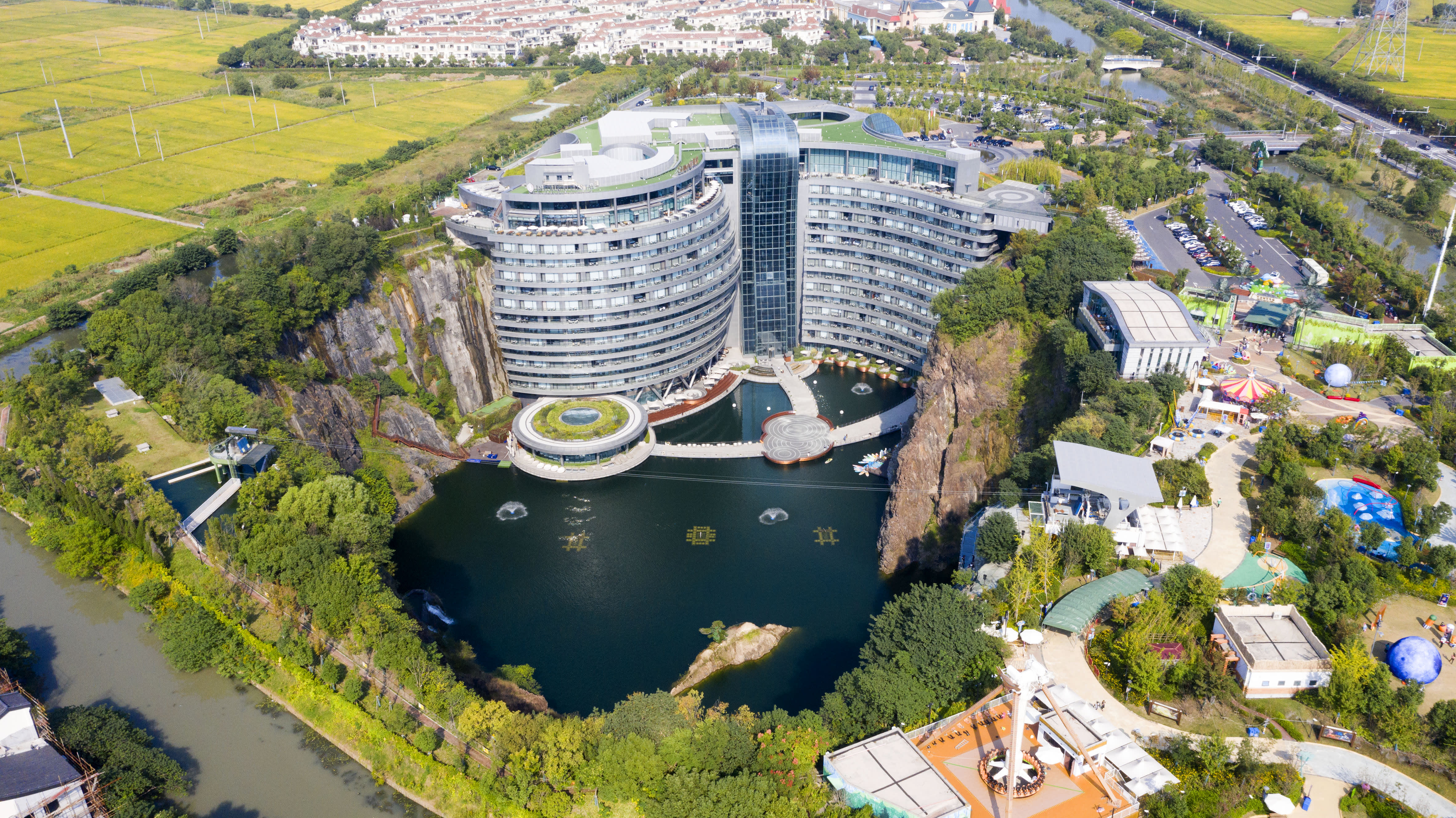Products You May Like
BEIJING — One of China’s healthiest real estate developers has reportedly defaulted, a sign of how more pain is ahead for the heavily indebted industry.
Shimao Group shares briefly plunged more than 17% Friday after Reuters reported the property developer failed to make full repayment on a trust loan. A subsidiary of the company subsequently said in a filing it was in talks to resolve the payment. Shares closed more than 5% lower in Hong Kong, while most major developers posted gains for the day.
China’s massive real estate industry has come under pressure as Beijing sought to reduce developers’ reliance on debt in the last two years. Global investors have mostly focused in the last several months on China Evergrande’s ability to repay its debt and the potential spillover to China’s economy.
In recent months, a few other developers have also started reporting financial strains. But Shimao’s troubles stand out.
“The reason that the market is a bit more worried about this case compared to the other developers that [fell] into trouble [is] because Shimao is considered … a relatively healthy name,” Gary Ng, Asia-Pacific economist at Natixis, said in a phone interview Friday.
He noted that Shimao met all three of Beijing’s main requirements for developers’ debt levels — the so-called “three red lines” policy which places limits on debt in relation to a company’s cash flows, assets and capital levels.
Ng also said the company’s struggles reflected broader pressure for business transformation in the current environment.
Investors increasingly pessimistic
Shimao missed a 645 million yuan ($101 million) payment, according to a China Credit Trust letter seen by Reuters on Thursday. The report cited two unnamed sources as confirming the letter.
Shimao and China Credit Trust did not immediately respond to CNBC’ request for comment on the report.
Select creditor events over the last year
Markit iBoxx USD Asia ex-Japan China Real Estate High Yield Index (1/2021-1/2022)
Source: CNBC, news reports
Separately, smaller rival Guangzhou R&F Properties disclosed earlier this week that it didn’t have enough money to buy back a bond. The company attributed the shortfall to a failure to sell assets.
Market sentiment on China’s real estate developers has grown increasingly negative over the last several months, according to Natixis’ proprietary analysis.
Before the broader market started paying attention to Evergrande, the market in June only viewed 15% of developers as negative, the analysis found.
That figure jumped to 35% in December, as Evergrande stopped paying investors on time and more developers began reporting financial difficulties.
More defaults likely
Natixis’ Ng also pointed to data on trust loans that indicate real estate companies are finding it harder to get financing. Although the total amount of capital in China’s trust category has climbed, the share of real estate has fallen from 15% in late 2019 to 12% in September 2021, he said.
“In the future, [I] wouldn’t be surprised if there are more defaults beyond bonds, beyond loans, different types of products,” Ng said.
He said the most likely way to ease investor worries in the sector would be news of capital injection from a state-backed fund.
Evergrande defaulted in early December without the market shock investors had worried about a few months earlier. But the overall industry has been in a tougher situation.
“Despite both the central government and some local governments implementing easing
measures, China’s property markets failed to make any material improvement in December; this was especially the case in lower-tier cities,” Nomura analysts said in a Jan. 4 note.
The firm has estimated Chinese developers face $19.8 billion in maturing offshore, U.S.-dollar denominated bonds in the first quarter, and $18.5 billion in the second. That first-quarter amount is nearly double the $10.2 billion in maturities of the fourth quarter, according to Nomura.
